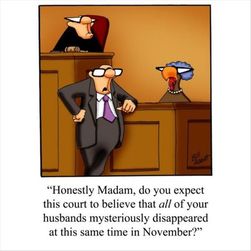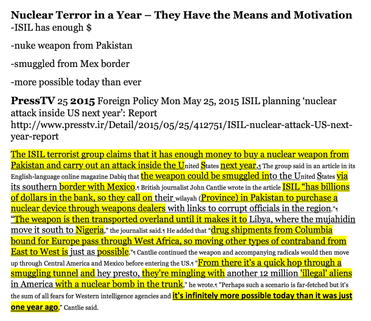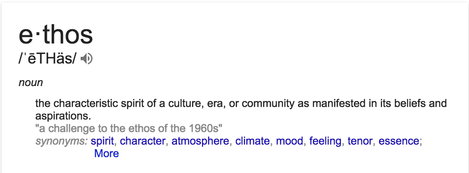Cross-Examination
Introduction

What is cross-ex?
Cross-ex, short for cross-examination, is a period of time between speeches where opponents ask each other questions to clarify and better understand each other's case (and, if all goes well, an important concession for you to win the debate).
Ultimately, you can think of cross-ex as another speech, except instead of continuous talking, you actually engage with your opponent. During this time, you are given the opportunity to demonstrate confidence and credibility that will allow you to become a more persuasive speaker and help you win speaker points.
Here's a clip of one of my favorite "cross-examinations" in movie history:
Cross-ex, short for cross-examination, is a period of time between speeches where opponents ask each other questions to clarify and better understand each other's case (and, if all goes well, an important concession for you to win the debate).
Ultimately, you can think of cross-ex as another speech, except instead of continuous talking, you actually engage with your opponent. During this time, you are given the opportunity to demonstrate confidence and credibility that will allow you to become a more persuasive speaker and help you win speaker points.
Here's a clip of one of my favorite "cross-examinations" in movie history:
The Do's and Don'ts of Questioning
Do:
- Keep your questions argumentative.
- Ask relatively short questions.
- Reference speeches in your questions. This keeps questions focused on relevant material in the debate as well as avoid broad questions that allow your opponents to give vague answers that don't give you any advantage.
- Make sure you fully understand arguments before moving on.
- Keep your eyes on the judge.
Don't:
- Start questions with "Do you agree..." or "Are you aware..."
- Re-explain things that are already clear. This wastes time for both you and your opponents.
- Look at your opponent when asking questions. You should always keep your eyes on the judge.
- Keep your questions argumentative.
- Ask relatively short questions.
- Reference speeches in your questions. This keeps questions focused on relevant material in the debate as well as avoid broad questions that allow your opponents to give vague answers that don't give you any advantage.
- Make sure you fully understand arguments before moving on.
- Keep your eyes on the judge.
Don't:
- Start questions with "Do you agree..." or "Are you aware..."
- Re-explain things that are already clear. This wastes time for both you and your opponents.
- Look at your opponent when asking questions. You should always keep your eyes on the judge.
The Do's and Don'ts of Answering
Do:
- Keep your answers short and sweet.
- Be specific to the question. Don't give them any more information than they need.
- Reference authors from the 1AC. Not only will this help you answer questions effectively, but this also shows the judge that you know your speech inside and out, which boosts speaker points.
- Stare at the judge for attention.
Don't:
- Answer irrelevant questions. (You can ask your opponents why a question is relevant before declining to answer.)
- Interrupt your partner if they're answering a question.
- Be afraid to admit you don't know something. If your opponent asks you something that both you and your partner don't know, it's better to admit you don't know than to lie about it. You can always argue later that it's not an important element of the debate anyways.
- Keep your answers short and sweet.
- Be specific to the question. Don't give them any more information than they need.
- Reference authors from the 1AC. Not only will this help you answer questions effectively, but this also shows the judge that you know your speech inside and out, which boosts speaker points.
- Stare at the judge for attention.
Don't:
- Answer irrelevant questions. (You can ask your opponents why a question is relevant before declining to answer.)
- Interrupt your partner if they're answering a question.
- Be afraid to admit you don't know something. If your opponent asks you something that both you and your partner don't know, it's better to admit you don't know than to lie about it. You can always argue later that it's not an important element of the debate anyways.
Ethos
What is ethos?
In the debate world, ethos is swag. It's an accumulation of your perceived confidence and credibility. Upping your ethos boosts your speaker points!
In the debate world, ethos is swag. It's an accumulation of your perceived confidence and credibility. Upping your ethos boosts your speaker points!
How can I boost my ethos during cross-ex?
1. Be calm and level-headed. Stay professional.
2. Maintain a loud tone, but do not be over-dominating.
3. Be polite. There's a fine line between confidence and arrogance.
1. Be calm and level-headed. Stay professional.
2. Maintain a loud tone, but do not be over-dominating.
3. Be polite. There's a fine line between confidence and arrogance.
How to Prepare for Cross-Ex

First, realize that there is no bulletproof way to prepare everything you'll need in cross-ex. Sometimes, you'll have to think on your feet and use your analytical skills at the drop of a hat. That's just how debate works. However, there are some measures you can take to help.
1. Pre-write some questions before the round. This is especially a good idea during researching. You may find some information on popular affirmative and negative arguments that can help you formulate questions.
2. Pre-write answers to possible questions before the round. This will help especially on the affirmative side, because you can anticipate certain questions about your case.
3. Come up with questions while you're listening to their speech. Often people get so caught up in trying to hear every single word and write down as much as they can while not actually listening to what those words really mean. Forcing yourself to come up with questions during their speech not only prepares you for the upcoming cross-ex, but also forces you to actually comprehend their case.
4. Write answers to questions after the round. If your opponent asks a question that you didn't know the answer to or gave a weak answer to, definitely make note of it and write up a stronger answer in case you're asked that question again in another round.
5. Know your speech. This seems really obvious, but it's important to recall your tags, authors, and the location of important phrases in your cards when answering questions. Remember that your opponent is asking questions about your speech. This means that the answers are in your speech. You just need to make an effort to find them and know where they are.
✪ Tip: On another page, write the tag, author and date of each card, then write a very short summary of what the card says. Feel free to include important quotes from the card.
- This forces you to actually read and comprehend every card in your speech.
- This provides a "cheat sheet" for possible cross-ex questions.
- This provides a navigation tool -- it's a lot easier to look at this than scrambling through your entire speech.
- You can use part of this for extending cards in your round.
1. Pre-write some questions before the round. This is especially a good idea during researching. You may find some information on popular affirmative and negative arguments that can help you formulate questions.
2. Pre-write answers to possible questions before the round. This will help especially on the affirmative side, because you can anticipate certain questions about your case.
3. Come up with questions while you're listening to their speech. Often people get so caught up in trying to hear every single word and write down as much as they can while not actually listening to what those words really mean. Forcing yourself to come up with questions during their speech not only prepares you for the upcoming cross-ex, but also forces you to actually comprehend their case.
4. Write answers to questions after the round. If your opponent asks a question that you didn't know the answer to or gave a weak answer to, definitely make note of it and write up a stronger answer in case you're asked that question again in another round.
5. Know your speech. This seems really obvious, but it's important to recall your tags, authors, and the location of important phrases in your cards when answering questions. Remember that your opponent is asking questions about your speech. This means that the answers are in your speech. You just need to make an effort to find them and know where they are.
✪ Tip: On another page, write the tag, author and date of each card, then write a very short summary of what the card says. Feel free to include important quotes from the card.
- This forces you to actually read and comprehend every card in your speech.
- This provides a "cheat sheet" for possible cross-ex questions.
- This provides a navigation tool -- it's a lot easier to look at this than scrambling through your entire speech.
- You can use part of this for extending cards in your round.
Thoughts on Tag-Teaming and Time

First of all, what is tag-team cross-ex? Tag-team cross-ex is when both you and your partner are allowed to talk during cross-ex, rather than just one person talking. Technically, each debater will only have one questioning and answering period absent the help of their partner.
Now, many of you panic about not being allowed to tag-team. Let's clear the air by saying that most judges allow tag-team cross-ex. You should always ask before round, or before cross-ex, but they mostly do allow it. And even if they don't, the partner that isn't speaking is allowed write on pieces of paper and hand it to the partner that is actually talking. So either way, both partners can still participate in cross-ex.
Despite these, it's in your favor to try not to tag-team and to use up as much time as possible. Aside from looking more credible and seizing and opportunity to boost speaker points, you can also use this time to steal prep, which can be infinitely beneficial to you in the round.
Remember, there is a cross-ex period after each set of constructive speeches. Because cross-ex is a time to question your opponent about their speech, it makes sense that the people who should be questioning and answering first would be the people who gave the 1AC and the 1NC. If those people don't use their partners during cross-ex, their partners could use this cross-ex period as time to prepare for their upcoming speeches without eating into their "actual" prep time. The next cross-ex should consist of the people who gave the 2AC and 2NC so that their partners can prepare to give their first rebuttals.
Now, many of you panic about not being allowed to tag-team. Let's clear the air by saying that most judges allow tag-team cross-ex. You should always ask before round, or before cross-ex, but they mostly do allow it. And even if they don't, the partner that isn't speaking is allowed write on pieces of paper and hand it to the partner that is actually talking. So either way, both partners can still participate in cross-ex.
Despite these, it's in your favor to try not to tag-team and to use up as much time as possible. Aside from looking more credible and seizing and opportunity to boost speaker points, you can also use this time to steal prep, which can be infinitely beneficial to you in the round.
Remember, there is a cross-ex period after each set of constructive speeches. Because cross-ex is a time to question your opponent about their speech, it makes sense that the people who should be questioning and answering first would be the people who gave the 1AC and the 1NC. If those people don't use their partners during cross-ex, their partners could use this cross-ex period as time to prepare for their upcoming speeches without eating into their "actual" prep time. The next cross-ex should consist of the people who gave the 2AC and 2NC so that their partners can prepare to give their first rebuttals.

